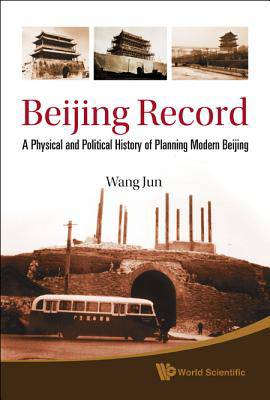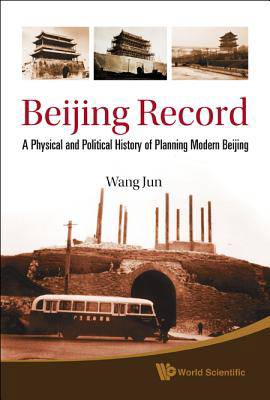
- Retrait gratuit dans votre magasin Club
- 7.000.000 titres dans notre catalogue
- Payer en toute sécurité
- Toujours un magasin près de chez vous
- Retrait gratuit dans votre magasin Club
- 7.000.000 titres dans notre catalogue
- Payer en toute sécurité
- Toujours un magasin près de chez vous
Beijing Record: A Physical and Political History of Planning Modern Beijing
Jun Wang
Livre relié | Anglais
88,95 €
+ 177 points
Description
Beijing Record, the result of ten years of research on the urban transformation of Beijing in the last fifty years, brings to an extended Western audience the inside story on the key decisions that led to Beijing's present urban fragmentation and its loss of memory and history in the form of bulldozing its architectural heritage. Wang's publication presents a survey of the main developments and government-level (both central and municipal) decisions, devoting a lot of attention to the 1950s and 1960s, when Beijing experienced a critical wave of transformative events.Shortly after its original Chinese bestseller edition was published by SDX joint Publishing Company House in October 2003, it ignited a firestorm of debate and discussion in a country where public interaction over such a sensitive subject rarely surfaces. The Chinese edition is in its 11th print run and was translated into Japanese in 2008. This newly-translated English version has the latest update on the author's findings in the area. As the only edition printed in full color with nearly 300 illustrations, the English version powerfully showcases the stunning architecture, culture, and history of China's Dynamic Capital, Beijing.Home to more than 15 million people, this ancient capital city -- not surprisingly -- has a controversial, complicated history of planning and politics, development and demolition. The publication raises a number of unsettling questions: Why have a valuable historical architectural heritage such as city ramparts, gateways, old temples, memorial archways and the urban fabric of hutongs (traditional alleyways) and siheyuan (courtyard houses) been visibly disappearing for decades? Why are so many houses being demolished at a time of economic growth? Is no one prepared to stand up for the preservation of the city?For his research, Wang went through innumerable archives, read diaries and collected an unprecedented quantity of data, accessing firsthand materials and unearthing photographs that clearly document the city's relentless, unprecedented physical makeover. In addition, he conducted more than 50 in-person interviews with officials, planners, scholars and other experts. Many illustrations are published here for the first time, compiled in the 1990s when archival public access was reformulated.
Spécifications
Parties prenantes
- Auteur(s) :
- Editeur:
Contenu
- Nombre de pages :
- 536
- Langue:
- Anglais
Caractéristiques
- EAN:
- 9789814295727
- Date de parution :
- 31-07-11
- Format:
- Livre relié
- Format numérique:
- Genaaid
- Dimensions :
- 155 mm x 229 mm
- Poids :
- 952 g







